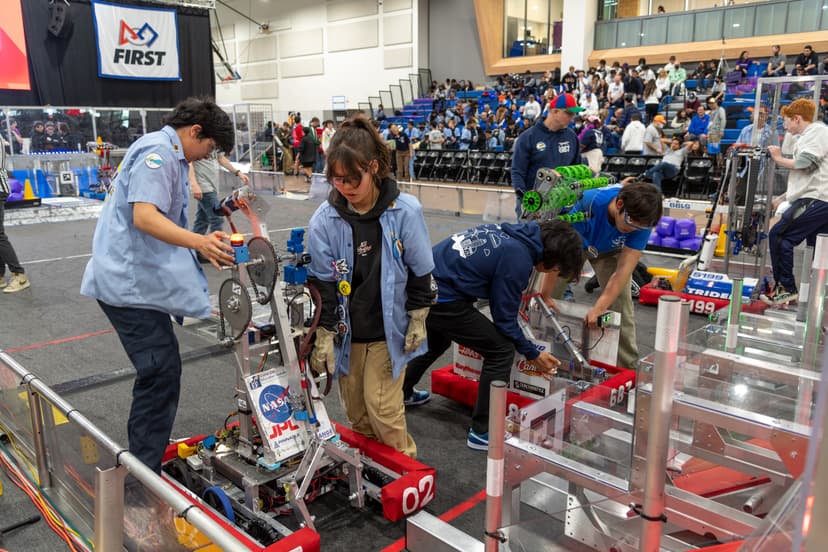Introduction
Confidence is often the difference between students who merely survive college and those who truly thrive. It's not about being the smartest person in the room or having all the answers—it's about believing in your ability to learn, grow, and contribute meaningfully to your academic and social communities.
Many students enter college feeling uncertain about their abilities, worried about fitting in, or anxious about academic challenges. These feelings are completely normal and don't reflect your actual potential. Confidence is a skill that can be developed through practice, self-awareness, and intentional effort.
Building confidence in college isn't about becoming someone you're not—it's about recognizing and embracing who you are while developing the courage to step outside your comfort zone. It's about learning to trust your instincts, advocate for yourself, and take calculated risks that lead to growth.
Overcoming Imposter Syndrome
Imposter syndrome—the feeling that you don't belong or aren't qualified despite evidence of your competence—affects many college students, especially those from underrepresented backgrounds or those who are the first in their families to attend college. You might feel like everyone else knows what they're doing while you're just pretending.
Recognize that imposter syndrome is common and doesn't reflect reality. Your admission to college wasn't a mistake—you earned your place through your academic achievements, extracurricular involvement, and personal qualities. The fact that you're questioning your abilities often indicates that you care deeply about doing well, which is a strength, not a weakness.
Combat imposter syndrome by keeping a record of your accomplishments and positive feedback. When you receive praise from professors, do well on assignments, or make meaningful contributions to class discussions, write it down. Review these achievements when self-doubt creeps in.
Remember that everyone is learning. Even students who seem confident are figuring things out as they go. College is designed to challenge you and push you beyond your current knowledge and abilities. Feeling uncertain is part of the learning process, not evidence of inadequacy.
"Confidence comes not from always being right, but from not being afraid to be wrong."
— Dr. Carol Dweck, Professor of Psychology at Stanford University
Building Academic Confidence
Academic confidence grows through preparation, participation, and persistence. Start by attending all your classes and arriving prepared. Complete readings before lectures, take notes actively, and come with questions. Being prepared reduces anxiety and increases your ability to contribute meaningfully to discussions.
Don't be afraid to ask questions in class. Remember that if you're confused about something, others likely are too. Asking questions shows engagement and helps everyone learn. Professors appreciate students who are curious and willing to seek clarification.
Participate in study groups and form study partnerships with classmates. Teaching others reinforces your own understanding and builds confidence in your knowledge. Explaining concepts to peers helps you identify areas where you need more practice while highlighting areas where you excel.
Seek help when you need it. Visit professors during office hours, utilize tutoring services, and connect with academic support resources. Asking for help isn't a sign of weakness—it's a sign of maturity and commitment to your education. Successful students know when and how to access support.
Stepping Into Leadership
Leadership opportunities in college help build confidence by pushing you to take initiative, make decisions, and influence others positively. Start small—volunteer for projects, offer to organize study groups, or take on responsibilities within existing organizations.
Don't wait until you feel completely confident to take on leadership roles. Confidence often comes through action, not before it. Each leadership experience builds your skills and self-assurance for future opportunities.
Focus on serving others rather than seeking recognition. The most effective leaders are those who genuinely care about their team members' success and well-being. When you approach leadership from a place of service, you naturally develop the confidence that comes from making a positive impact.
Learn from both successes and failures. Every leadership experience teaches you something valuable about yourself, others, and effective leadership practices. Reflect on what worked well and what you'd do differently next time. This continuous learning builds both skills and confidence.
Embracing Your Journey
Building confidence in college is a gradual process that requires patience, self-compassion, and consistent effort. You won't feel confident in every situation immediately, and that's okay. Confidence grows through experience, reflection, and the courage to keep trying even when you feel uncertain.
Remember that confidence isn't about never feeling afraid or uncertain—it's about trusting yourself to handle challenges and learn from experiences. It's about believing in your ability to grow, adapt, and contribute meaningfully to your community.
Celebrate your progress, no matter how small. Each time you speak up in class, join a new organization, or take on a leadership role, you're building confidence. Each time you ask for help, advocate for yourself, or try something new, you're developing the courage that will serve you throughout your life.
Your college years are a unique opportunity to develop confidence in a supportive environment designed for learning and growth. Embrace the challenges, learn from the setbacks, and trust in your ability to navigate this transformative experience. The confidence you build now will be one of the most valuable assets you carry into your future career and life.




Developing Social Confidence
Social confidence in college comes from being authentic, showing genuine interest in others, and stepping outside your comfort zone regularly. Start conversations with classmates, join clubs or organizations that align with your interests, and attend campus events. Remember that most students are looking to make connections just like you.
Practice active listening and ask follow-up questions when meeting new people. People appreciate when others show genuine interest in their experiences and perspectives. Focus on learning about others rather than impressing them with your own accomplishments.
Don't try to be someone you're not to fit in. Authenticity attracts the right people—those who appreciate you for who you are. It's better to have a few genuine friendships than many superficial connections.
Embrace opportunities to meet people from different backgrounds and with different perspectives. College provides unique opportunities to expand your social circle beyond your high school experience. Be open to friendships that challenge your assumptions and broaden your worldview.